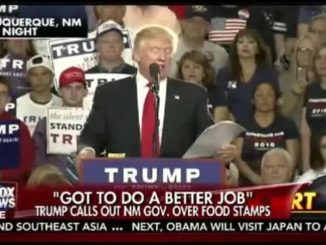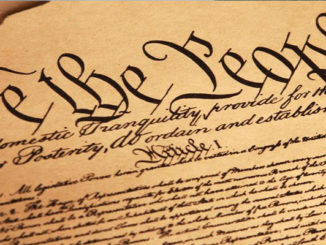
President Obama will soonannounce an executive action to defer the deportations of somewhere between 1 million and 4.5 million unauthorized immigrants. Those whose deportations are deferred will be eligible for a temporary work permit through a 1987 provision in the Code of Federal Regulations.
Those who support immigration reform note that any executive action by the President will poison the well for reform, making it impossible for Congress to move piecemeal bills to the President’s desk. Last year, one of the most effective arguments against immigration reform was that President Obama would not enforce the law as written, a prediction that seems to be borne out with this executive action. The Wall Street Journal editorial board said it the best:
If he does issue an executive order, we hope Republicans don’t fall for his political trap. He and many Democrats want Republicans to appear to be anti-immigrant. They want the GOP to dance to the Steve King-Jeff Sessions blow-a-gasket caucus.
To poison the well of reform there actually had to be water in the well to begin with. I’m not convinced there was. If there was a serious Congressional effort to reform immigration in the immediate future, then the President’s actions here would totally derail it.
Congress will not act to pass immigration reform if they are acting under threat of the President’s executive action – a threat he has wielded since his 2012 Deferred Action on Childhood Arrivals. He brought that threat out frequently in 2014, famously announcing that he would delay any such decision until after the midterms. If Republicans pass a bill under threat of an executive action or in response to it then they look like they’re kowtowing to the President – an untenable position for any individual Republican to be in.
For Congress to act without looking like it is bending to President Obama’s threat, the specter of executive action would have to be credibly removed. But at this juncture, the President cannot credibly remove his threat of an executive action which means that Republicans in Congress won’t act to reform immigration.
The only conceivable way to remove that threat is for the GOP to block the President’s actions through the budget process. If the well was not poisoned before that, it probably would be after a nasty budget battle to defund this executive action. If the executive order is blocked and the well is poisoned due to that nasty battle, then we are right back where we were without any change in immigration enforcement policy.
The President knows that many Republicans in Congress will react to this executive action as a bull would react to the waving of a red flag by a matador: they will charge. Obama the matador is banking on that reaction to cement the image that the Republicans are the enemies of immigration reform and the Democrats are friendly to that cause. However, that does not mean President Obama is solely to blame. The Republicans in Congress could control their reaction and not charge that red flag, instead charting a different legislative course to nullify the President’s actions without seeming to oppose immigration. What is that path?
Republicans could override President Obama’s actions by passing piecemeal immigration reform bills that nullify the executive orders but also permanently reform the system in some conservative ways. Congress could add in provisions that will make their version of immigration reform veto proof. Republicans could create a larger and less regulated guest worker visa program for migrants of all skill levels without having to cater to union demands, thus destroying the incentive for future unlawful immigration. Combining that with a conservative version of the DREAM Act or a resurrected KIDS Act would make such a bill veto-proof despite the exclusion of left-wing groups from crafting the legislation. Because Republicans control Congress, they could exclude every left-wing interest group from the debate on Capitol Hill.
There are two major downsides to this approach. First, the Republican Congress might instead combine enforcement with some modest legalization and thus fail to address the problem of our restrictive immigration system that actually encourages unauthorized immigration in the first place. Second, the Republicans might not be able to act together after the executive order is issued. They might ex ante commit to passing a bill but after the executive order is issued they might change their strategy to one of pure opposition.
A bill would likely legalize far more unauthorized immigrants than the President’s executive action. If the numbers reported are accurate, this executive action would temporarily defer the deportations of only about 40 percent of unauthorized immigrants while a legislative legalization could cover many more.
The best possible policy outcome is if Congress were to use this opportunity to seriously debate and pass some of the conservative proposals on immigration reform. The President’s executive action is temporary and can be overturned at whim. Congress, on the other hand, can offer a permanent solution with far broader appeal and impact.
If the Congress is not likely to seriously debate and pass immigration reform this term, the President’s executive action does not poison the well and would improve immigration policy from a pure policy perspective (I’ll discuss the Constitution below). If Congress is likely to take up the issue, then this executive action will stymie real reform unless Republicans can channel their opposition into passing some of their own reform bills.
The Constitution
Whether the President’s actions will be constitutional is the thorniest important question surrounding this issue. The big debate is whether executive prosecutorial discretion in this case rises to the level of nullification of the law. If Obama’s actions do rise to the level of nullification, then they are unconstitutional. But if his actions fall short of nullification, then his actions are likely to be constitutional. On this issue, I defer to my brilliant colleagues who are experts in constitutional law.
Here is a good summary of the legal issues. The conclusion that that document is worth quoting in its entirety (footnotes excluded):
Regardless of whether it is characterized as “prosecutorial discretion” or “enforcement discretion,” immigration officers are generally seen as having wide latitude in determining when, how, and even whether to pursue apparent violations of the INA. This latitude is similar to that possessed by prosecutors in the criminal law enforcement context and enforcement officials in other federal agencies. Whether and how to constrain this discretion has been a recurring issue for some Members of Congress, particularly in light of the June 2011 DHS memorandum on prosecutorial discretion and the more recent DACA initiative. While some Members have expressed support for the DACA initiative, or called for expanded use of prosecutorial discretion by immigration authorities in other contexts, others have sought to prohibit DHS from granting deferred action or extended voluntary departure to removable aliens except in narrow circumstances, or to “nullify” particular policies regarding prosecutorial discretion that have been articulated by the Obama Administration.
The extent to which Congress can constrain the Administration’s exercise of discretion in the DACA context, in particular, may depend on whether a reviewing court characterizes the underlying authority for the implementation of the program as constitutionally or statutorily based. Congress has broad authority to restrict discretionary acts taken pursuant to statutory delegations, while arguably limited authority, under the doctrine of Separation of Powers, to restrict the President’s exercise of constitutionally based discretion. In addition, the degree of intrusion into executive enforcement decisions may also impact a court’s review of any congressional response. For example, legal precedent suggests that Congress probably cannot directly limit the President’s exercise of discretion by requiring that the executive branch initiate enforcement actions against particular individuals. On the other hand, Congress would appear to have considerable latitude in establishing statutory guidelines for immigration officials to follow in the exercise of their enforcement powers, including by “indicat[ing] with precision the measures available to enforce the” INA, or by prohibiting DHS from considering certain factors in setting enforcement priorities.
However, the existing judicial presumption that “an agency’s decision not to take enforcement action [is] immune from judicial review,” and the deference potentially accorded to an agency’s interpretation of its governing statute, suggests that such statutory guidelines would likely need to be clear, express, and specific. The use of “shall” in a provision of the INA may not, in itself, suffice for a statute to be construed as having provided enforceable guidelines for immigration officials to follow in exercising prosecutorial discretion. Absent a substantive legislative response, Congress may still be able to influence the implementation of DACA or other discretion-based policies by the immigration authorities, including by engaging in stringent oversight over the DHS program or by exercising its “power of the purse” to prohibit DHS and its components from implementing particular policies related to the exercise of prosecutorial discretion that Congress does not support.
To add a wrinkle to this issue, every President since Eisenhower has deferred the deportations of some classes of unauthorized immigrants or paroled some of them into the legal immigration system. The Immigration Policy Center has put together a wonderful document explaining these previous executive actions. The most interesting action was President George H.W. Bush’s deportation deferral for about 1.5 million unauthorized immigrants who were the spouses and children of those legalized under the 1986 Immigration Reform and Control Act.
Conclusion
If the President’s executive action is constitutional and would not crowd out a series of reform bills, then executive action would be an unambiguously positive policy development that would reduce the harm caused by our restrictive immigration system. If the executive action is either unconstitutional or stymies a real immigration reform effort in Congress then the long term harm will outweigh any short term benefit.
Alex Nowrasteh is the immigration policy analyst at the Cato Institute’s Center for Global Liberty and Prosperity.



